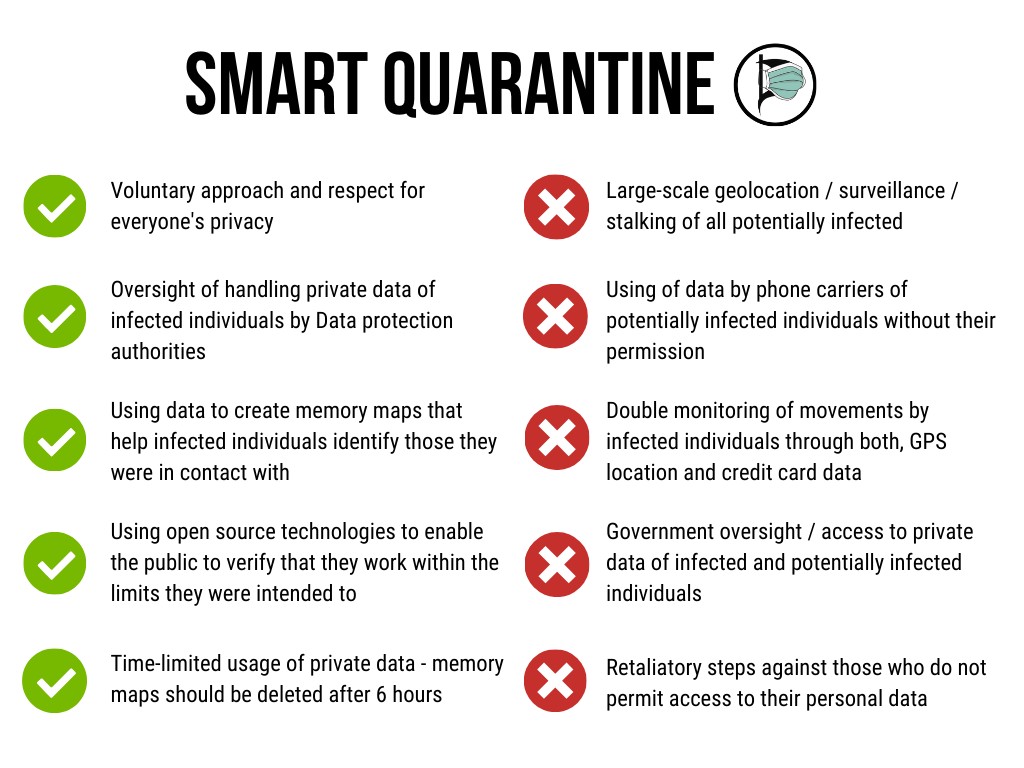Brussels, 7 April 2020 – After the initial onslaught and extreme measures related to the coronavirus pandemic, European countries are preparing to withdraw from the “hard” quarantine and replace it with “smart” quarantine in the coming weeks. Although there is no precedent, the word “smart” in the context of quarantine always refers to the use of large data, whether geolocation or financial transaction data. “The data needed to create models of coronavirus development, whether from telephone operators or credit card issuers, or provided by users themselves through applications, must be fully anonymized and secured against abuse,” said Vice-President of the European Parliament Marcel Kolaja.
The European Commission is trying to gather data from telephone operators at the European level to model the evolution of the pandemic. “The Commissioner for Internal Market and Services, Thierry Breton, informed us at the meeting of the Committee on the Internal Market and Consumer Protection that the Commission has experience with this type of modeling and confirmed that the data would be fully anonymized and it will not be possible to abuse them, furthermore he assured us that this was also confirmed by the European Data Protection Supervisor,” says Kolaja.
The second option, that is the collection of data from applications installed on citizens’ mobile phones, has some additional pitfalls apart from protecting the data sent.
“I believe the most important element is that applications should be based on Free and Open Source Software (FOSS). This will make the code available for review to the entire developer community and the expert community, who can investigate and test it in detail, draw attention to security holes and other pitfalls that may be hidden in it. If the application were not open, citizens could never be sure that other data, which could be misused, are not being sent from the phone,” Kolaja continues.
“One of the important powers of the Commission is to monitor the compliance of individual Member States with EU law, where data protection is directly enshrined. In the case of clever quarantines, this surveillance should be particularly detailed,” Kolaja added.
In the attached infographics, you can find an overview of what a smart quarantine should be and what would make it a system that can be exploitable for clever snooping.



0 comments on “Kolaja: Europe should keep an eye on the security of smart quarantine applications”